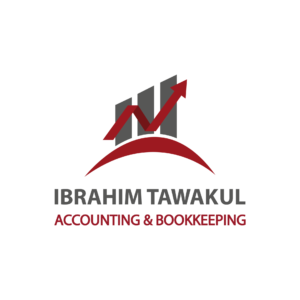BUSINESS ACCOUNTING
Introduction
Effective financial management is crucial for the success and growth of any business. Business accounting plays a vital role in managing the financial aspects of a company, providing valuable insights into its financial health, facilitating decision-making, and ensuring compliance with regulations. In this article, we will explore the importance of business accounting and how it contributes to the overall success of a business.
Table of Contents
- Understanding Business Accounting
- The Importance of Business Accounting
- Key Financial Statements
- Essential Accounting Practices
- Choosing the Right Accounting Method
- Compliance with Financial Regulations
- Tax Planning and Preparation
- Budgeting and Forecasting
- Financial Analysis and Decision-Making
- Software and Technology for Business Accounting
- Outsourcing Business Accounting Services
- Benefits of Hiring a Professional Accountant
- Common Accounting Mistakes to Avoid
- Ensuring Data Security and Confidentiality
- Conclusion
Understanding Business Accounting
Business accounting is the process of recording, analyzing, and reporting financial transactions and information related to a business. It involves the systematic recording of financial data, such as revenue, expenses, assets, and liabilities, to provide an accurate representation of a company’s financial position. Business accounting helps business owners, stakeholders, and investors gain insights into the financial performance and stability of the company.
The Importance of Business Accounting
Business accounting is essential for several reasons:
Financial Monitoring: Accounting allows businesses to monitor their financial transactions and performance regularly. It provides a clear picture of revenue, expenses, and profits, helping businesses identify areas for improvement and make informed decisions.
Compliance and Legal Obligations: Accurate accounting ensures compliance with financial regulations, tax laws, and reporting requirements. It helps businesses meet their legal obligations and reduces the risk of penalties or legal issues.
Decision-Making: Business accounting provides crucial financial data and insights that support effective decision-making. It enables business owners to evaluate the profitability of projects, assess financial risks, and allocate resources strategically.
Financial Planning: Accounting helps in developing budgets, setting financial goals, and creating forecasts. It allows businesses to plan for future growth, manage cash flow, and allocate resources efficiently.
Stakeholder Communication: Accurate financial statements and reports generated through accounting facilitate communication with stakeholders, including investors, lenders, and shareholders. Transparent financial information enhances trust and confidence in the business.
Key Financial Statements
Financial statements are the primary outputs of business accounting. The main financial statements include:
Balance Sheet: A snapshot of a company’s financial position at a specific point in time. It presents the assets, liabilities, and equity of the business.
Income Statement: Also known as the profit and loss statement, it shows the revenues, expenses, and net income or loss generated over a specific period.
Cash Flow Statement: This statement provides information about the cash inflows and outflows of a business, indicating the operating, investing, and financing activities.
Statement of Owner’s Equity: This statement summarizes the changes in the owner’s equity of the business, including contributions, withdrawals, and retained earnings.
Essential Accounting Practices
To maintain accurate and reliable financial records, businesses should follow essential accounting practices, including:
Recording Transactions: Every financial transaction should be recorded promptly and accurately. This includes invoices, receipts, payments, and other relevant documents.
Reconciling Accounts: Regularly reconcile bank statements, accounts receivable, and accounts payable to ensure accuracy and identify any discrepancies.
Double-Entry Bookkeeping: Implement a double-entry bookkeeping system to maintain proper records of debit and credit entries for every transaction, ensuring accuracy and adherence to accounting principles.
Documenting Policies and Procedures: Establish clear accounting policies and procedures to guide the recording, categorization, and reporting of financial transactions.
Choosing the Right Accounting Method
Businesses can choose between different accounting methods, such as:
Cash Basis: Recognizes revenue and expenses when cash is received or paid. This method is straightforward and suitable for small businesses with simple financial transactions.
Accrual Basis: Recognizes revenue and expenses when they are earned or incurred, regardless of cash flow. This method provides a more accurate representation of a company’s financial position and is suitable for businesses with more complex operations.
Hybrid Method: Combines elements of both cash and accrual accounting to best suit the needs of the business.
The choice of accounting method depends on the nature of the business, regulatory requirements, and financial reporting needs.
Compliance with Financial Regulations
Business accounting involves compliance with various financial regulations, including tax laws, reporting standards, and industry-specific regulations. To ensure compliance:
Stay Updated: Keep abreast of changes in financial regulations, tax laws, and reporting standards that may affect the business.
Maintain Accurate Records: Maintain accurate and organized financial records, including supporting documents, to demonstrate compliance and facilitate audits.
Seek Professional Advice: Consult with a professional accountant or tax advisor to navigate complex financial regulations and ensure compliance with specific requirements.
Tax Planning and Preparation
Business accounting plays a vital role in tax planning and preparation. By maintaining accurate financial records and following proper accounting practices, businesses can:
Minimize Tax Liabilities: Identify tax deductions, credits, and incentives applicable to the business to optimize tax savings.
Ensure Timely Tax Payments: Maintain proper records and calculations to ensure timely submission of tax returns and payments, avoiding penalties and interest.
Facilitate Audits: Well-documented financial records simplify the process of tax audits, reducing the time and effort required to respond to inquiries from tax authorities.
Budgeting and Forecasting
Business accounting provides the foundation for effective budgeting and forecasting. By analyzing financial data, businesses can:
Develop Realistic Budgets: Use historical financial information to set realistic revenue and expense targets for the future, aligning them with business goals.
Plan for Growth: Forecasting based on financial data helps businesses anticipate future financial needs, plan for expansion, and secure necessary funding.
Monitor Performance: Regularly compare actual financial results with budgeted figures to identify variances and make necessary adjustments to achieve financial goals.
Financial Analysis and Decision-Making
Business accounting enables financial analysis and informed decision-making by providing the necessary financial data. Key aspects include:
Ratio Analysis: Analyzing financial ratios helps assess liquidity, profitability, and financial stability, aiding in decision-making and identifying areas for improvement.
Investment Decisions: Financial data assists in evaluating potential investments, assessing their financial viability, and estimating returns on investment.
Cost Analysis: Detailed accounting records allow businesses to analyze costs, identify cost-saving opportunities, and optimize resource allocation.
Software and Technology for Business Accounting
Modern business accounting relies on software and technology solutions to streamline processes and enhance efficiency. Popular accounting software options include:
QuickBooks: A widely used accounting software suitable for small to medium-sized businesses, offering features such as bookkeeping, invoicing, and financial reporting.
Xero: A cloud-based accounting platform known for its user-friendly interface and advanced features, including bank reconciliation, expense tracking, and payroll management.
Sage Intacct: A comprehensive accounting software designed for businesses of all sizes, offering robust financial management, reporting, and analytics capabilities.
Zoho Books: An intuitive accounting software solution that provides invoicing, expense tracking, and inventory management features, suitable for small businesses.
Choosing the right accounting software depends on the specific needs of the business, scalability, and integration capabilities with other business systems.
Outsourcing Business Accounting Services
Outsourcing business accounting services is a viable option for businesses seeking specialized expertise and cost savings. Benefits of outsourcing include:
Expertise and Accuracy: Professional accounting service providers have trained professionals with expertise in accounting practices, ensuring accuracy and compliance.
Cost Savings: Outsourcing eliminates the need to hire and train in-house accounting staff, reducing overhead costs associated with salaries, benefits, and workspace.
Focus on Core Operations: Outsourcing accounting tasks allows business owners and employees to concentrate on core operations and revenue-generating activities.
Scalability and Flexibility: Outsourced accounting services can scale with the business, accommodating growth and changing needs.
Benefits of Hiring a Professional Accountant
Hiring a professional accountant offers several advantages, including:
Expert Advice: Professional accountants provide valuable insights, advice, and financial planning strategies to optimize the financial health of the business.
Accurate Financial Reporting: Certified accountants ensure compliance with accounting standards, regulations, and reporting requirements, enhancing the credibility of financial statements.
Tax Planning and Compliance: Accountants are knowledgeable in tax laws and regulations, helping businesses maximize tax savings and ensure compliance with tax obligations.
Strategic Financial Guidance: Accountants assist in financial analysis, budgeting, and forecasting, supporting long-term strategic decision-making.
Common Accounting Mistakes to Avoid
To maintain accurate financial records and avoid costly errors, businesses should avoid these common accounting mistakes:
Inadequate Record-Keeping: Poor documentation and disorganized records make it difficult to track financial transactions and may lead to errors or omissions.
Mixing Personal and Business Finances: Keep personal and business finances separate to maintain accurate financial records and simplify tax reporting.
Ignoring Reconciliation: Failing to reconcile accounts regularly may result in discrepancies, errors, or missed transactions.
Lack of Backup and Data Protection: Insufficient data backup and security measures increase the risk of data loss or unauthorized access.
Ensuring Data Security and Confidentiality
Protecting financial data is crucial in business accounting. Measures to ensure data security and confidentiality include:
Data Encryption: Utilize encryption methods to safeguard financial data from unauthorized access or breaches.
Restricted Access: Limit access to financial records to authorized personnel only, using secure login credentials and access controls.
Regular Backup: Implement regular data backup procedures to prevent data loss and facilitate recovery in case of system failures or disasters.
Compliance with Data Privacy Laws: Adhere to data privacy regulations and industry-specific guidelines to protect sensitive financial information.
Conclusion
Business accounting is integral to the success and growth of a business. It provides insights into financial performance, aids decision-making, ensures compliance, and facilitates financial planning and analysis. By following best accounting practices, utilizing software and technology solutions, and considering outsourcing options, businesses can streamline their accounting processes, enhance data security, and focus on core operations. Professional accountants play a crucial role in providing expertise, accurate financial reporting, and strategic financial guidance. Embracing sound accounting principles and practices enables businesses to thrive in a competitive marketplace and achieve long-term financial stability.
FAQs (Frequently Asked Questions)
Q: How often should I update my financial records?
A: Financial records should be updated regularly, ideally on a daily or weekly basis, to maintain accuracy and timeliness.
Q: Can business accounting software integrate with other business systems?
A: Yes, modern business accounting software often integrates with other systems such as payroll, inventory management, and customer relationship management (CRM), streamlining data flow and enhancing efficiency.
Q: Is it necessary for small businesses to hire a professional accountant?
A: While it is not mandatory for small businesses to hire a professional accountant, their expertise can provide significant benefits, including accurate financial reporting, tax planning, and strategic financial guidance.
Q: What should I look for when choosing an accounting software for my business?
A: Consider factors such as the specific needs of your business, scalability, ease of use, integration capabilities, customer support, and cost when choosing accounting software.
Q: How can I ensure the security of my financial data?
A: Implement data encryption, restricted access controls, regular data backups, and compliance with data privacy laws to protect your financial data from unauthorized access or breaches.

